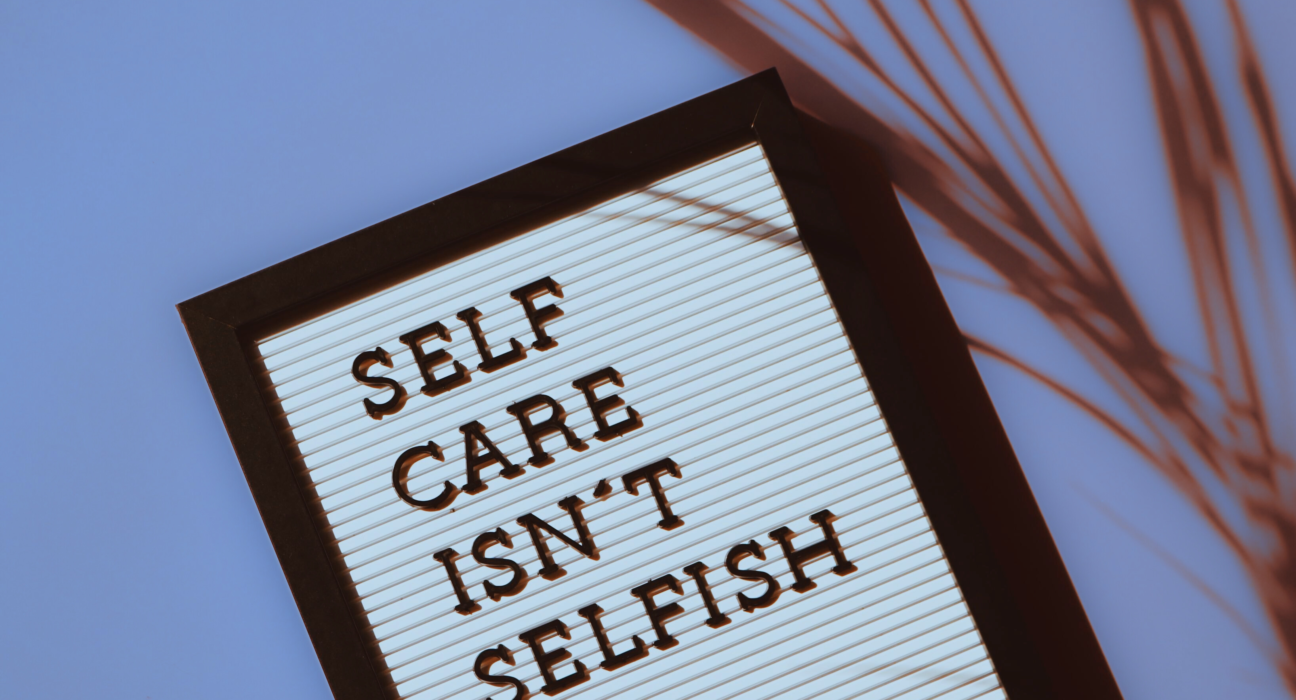Self-Care Practices for Mental Wellness

Self-Care Introduction
“Self-care is not selfish. You can’t serve from an empty vessel”— Eleanor Brown.
This phrase expresses an important truth: in order to thrive psychologically and emotionally, we must prioritize our own well-being. Self-care is important, according to research, and people who practice it on a daily basis have lower levels of stress and better Mental Health. Research published in the Journal of Clinical Psychology discovered that consistent self-care can significantly decrease feelings of frustration and anxiety.
Self-care consists of a variety of activities and practices that focus on improving our mental health. It is more than just occasional pleasure or relaxation; it is a conscious, continuing commitment to our physical, emotional, and psychological well-being.
Self-care is important because it promotes resilience, balance, and general mental well-being, allowing us to more easily handle challenges in life.
This article will look at a variety of self-care strategies that may be practiced in daily life, including physical, emotional, social, and mental routines. We will discuss the advantages of these practices and provide practical guidance on how to incorporate them into your daily routine to improve your mental health and general quality of life.
Understanding self-care
Self-care entails taking the time to address your own needs and well-being. In terms of mental well-being, this means actively participating in activities and behaviors that promote and improve mental health.
It’s more than simply treating yourself to a spa day (though that may help); it’s about building consistent habits that boost your mental and emotional health.
Self-care is important for managing stress, balancing emotions, and maintaining general well-being. When you prioritize self-care, you are better prepared to deal with life’s ups and downs, lowering the chance of burnout and boosting your overall quality of life.
There are some prevalent misconceptions about self-care. For example, some people consider it selfish or only necessary when they are struggling. In truth, self-care is an active strategy for maintaining health and avoiding issues before they worsen. It is a routine practice, not a last resort.
Physical Self-Care
- Exercise: Exercise is a powerful technique for improving mental health. Endorphins, sometimes known as “feel-good” chemicals, are released during physical exercise and can help improve your mood while also reducing anxiety and despair. Simple activities such as walking, yoga, or strength training may have a major impact on how you feel.
- Nutrition: Nutrition has a significant impact on mental health. A well-balanced diet rich in essential nutrients promotes brain function and emotional management. For example, diets high in omega-3 fatty acids (like fish), vitamins (like leafy greens), and minerals (like almonds) can improve mental ability and emotional stability.
- Quality sleep: Quality sleep is another essential component of mental health. Good sleep hygiene, such as maintaining a consistent sleep schedule, developing a soothing bedtime ritual, and avoiding stimulants like caffeine before bed, can enhance sleep quality and, hence, your mental health.
Emotional Self-Care
- Mindfulness and Meditation: Mindfulness and meditation are stress-management techniques that promote emotional resilience. These techniques help you stay present and lessen the influence of unpleasant thoughts. Breathing exercises, guided meditation applications, and mindfulness practices can all help you relax and improve your emotional state.
- Journaling: Journaling is another effective technique for emotional self-care. Writing down your thoughts and feelings might help you feel better and get insight into your emotions.
- Reflective Writing: Reflective writing allows you to digest your experiences; gratitude diaries may help you focus on the positive elements of your life; and emotional tracking can help you understand and manage your emotional patterns.
- Therapeutic Activities: Therapeutic activities such as art therapy or music therapy can be quite effective. Engaging in creative activities enables you to express yourself and process your emotions in a healthy manner. These hobbies not only give emotional relief, but they also allow you to connect with yourself on a deeper level.
Social Self-Care
- Building Relationships: Building supportive relationships and keeping social ties is critical for mental health. A strong network of friends and family offers emotional support, lowers feelings of loneliness, and fosters a sense of community. Regular communication with loved ones makes you feel supported and valued.
- Strategies: To develop these relationships, make an effort to contact friends and family on a regular basis, whether through phone conversations, video chats, or in-person visits. Participating in social organizations or clubs that are relevant to your interests might help you broaden your social circle and gain additional assistance.
- Setting Boundaries: It is critical to set appropriate boundaries to maintain your mental health and avoid burnout. Learning to say no to further responsibilities when you’re already stressed helps prevent overload. Balancing work and personal life allows you to relax and enjoy leisure activities without feeling stressed.
- Seeking Support: Don’t be afraid to seek expert help if necessary. Using support networks, such as therapists, counselors, or support groups, may give vital insight and assistance in navigating difficult situations. Seeking help is a proactive approach to preserving your mental health.
Mental Self-Care
- Participating in Hobbies: Following hobbies and interests is an excellent way to fill your life with joy and meaning. Reading, gardening, crafts, and learning new skills all give you a creative outlet and may dramatically improve your mood and sense of accomplishment.
- Personal Development: Setting personal objectives and focusing on self-improvement are essential components of mental self-care. Participating in activities such as taking classes, visiting seminars, or reflecting on personal accomplishments promotes growth and keeps you motivated and involved in your own development.
- Positive affirmations: Applying positive affirmations to your daily practice may significantly boost your self-esteem and mental resilience. Repeating affirmations and engaging in positive self-talk reinforces a healthy mentality and can move your attention from self-doubt to self-empowerment.
Practical Tips for Implementing Self-Care
- Daily routine: To include self-care activities into your daily or weekly routine, try setting specific times for them. Creating a self-care plan with particular activities you like guarantees that you prioritize your well-being despite your busy schedule.
- Overcoming Obstacles: Common barriers to self-care include time limits, a lack of enthusiasm, and feelings of being overwhelmed. To overcome these hurdles, begin with simple, doable self-care activities, set realistic objectives, and seek help from friends or experts to stay motivated.
- Finding What Works: Experiment with several self-care routines to see what best meets your requirements and preferences. Self-care is extremely personal, so selecting activities that appeal to you and fit into your schedule can help you maintain a regular and successful habit.
Self Care Across Life Stages
- Children and teenagers: Self care techniques for children may involve coping with school stress, finding healthy methods to express emotions, and building habits. Encourage regular physical exercise, open communication with caregivers, and hobbies that support their mental health.
- Adults: Adults frequently combine job, family, and personal duties, making self-care critical to balancing these demands. Setting boundaries between work and family life, finding time for hobbies, and getting help when required are all stress management strategies.
- Older adults: Self-care for older people might include preserving physical health, being socially engaged, and dealing with any emotional changes that occur as they age. Regular exercise, social activities, and the pursuit of hobbies can all contribute to mental and physical wellness.
Conclusion
Recap: We’ve looked at a variety of self-care activities, including physical, emotional, Social, and mental well-being. Each practice is important for maintaining and developing your mental health, allowing you to live a more balanced and satisfying life.
Encouragement: Make self-care a priority by incorporating these activities into your routine. Taking positive steps towards self-care is critical for enhancing mental health and well-being.
Final thoughts: Consistent self-care may have a major effect on your mental health. Adopt these techniques to improve your quality of life and face life’s obstacles with greater resilience and joy.










